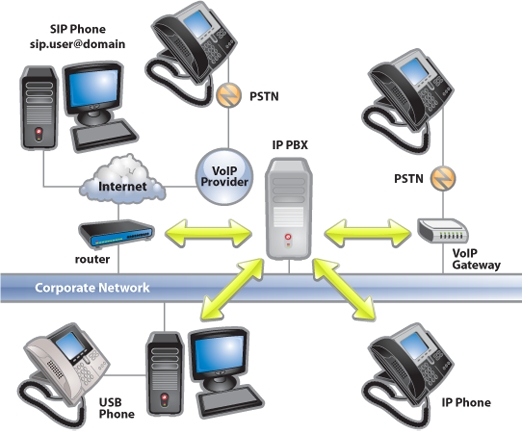
The premises-based PBX system has been a staple of the business world for decades, allowing companies to manage their telecommunications set-up and provide proper inbound and outbound calling facilities for a number of users.
However, an increasing emphasis on IP-based telecoms is putting the future of the analogue PBX in jeopardy, since there are many who believe that this technology has become outmoded by its digital successor, leaving it as a historical footnote that is irrelevant in the modern world.
Can you truly write off the traditional in-house PBX in favour of its IP-based alternative, or is there still life in this kind of equipment, allowing businesses to take a gradual approach to adopting contemporary hardware?
It is perhaps useful to look at past PBX technology in order to plot out where its future might lead. Prior to the 1960s, many businesses required switchboard operators in order to manage both internal and external calls, but these were phased out once advances were made that could automate this system.
Next to go were answering services, since calls could automatically be routed and managed without the need for human input, saving companies money and streamlining the means of getting in touch with staff.
Finally the telecoms firms realised that the expense of having to replace an entire phone system with each new development was not desirable, inviting the age of incremental updates. This meant that extensions and service features could be integrated on the fly, incorporating existing systems into the mix.
This eventually led to further convergence within the industry so that voice and digital data became one and the same, with video and messaging communications also being combined in the same mix thanks to IP-based systems.
It is important to note that telecommunications firms learned their lesson when it came to introducing new hardware into the business world, because it is clear that companies do not want to spend large amounts of money on set-ups that will be made obsolete a few years down the line.
This has generated a need for both forward-thinking designs and backwards compatibility. The result is that PBX systems which were designed to manage multiple analogue calls are not completely outmoded in the modern world, being able to sit alongside or become unified with IP-based services in order to preserve their integrity.
It is equally important to note that companies which do opt for a fresh IP-based PBX will be just as ready to face the future and further the functionality of their telecommunications system as they require.
Perhaps the biggest benefit of the introduction of IP telecoms is that there is less of an emphasis on in-house hardware. Hosted solutions mean that a third party is responsible for providing the backbone of the infrastructure so that a business is not limited by whatever set-up it chooses to deploy in the office.
Adding extensions and allowing your business to grow as it acquires new employees will not be an issue if you rely on an IP voice solution.
In addition, the convergence of voice with other means of communication, as well as the inclusion and integration of mobile services into the broader IP arrangement, means that business people have never been better connected.
It is unreasonable to claim that traditional on-premises PBX systems will remain in use indefinitely, since it seems that the market is leaning towards IP solutions and total saturation is inevitable. However, the sensitivity of the industry to the needs of businesses means that you do not need to take an ‘either/or’ approach to the problem.
This article was written by Daisy Group plc are a leading provider of business telephony including traditional phone systems, VoIP and IP telephony to UK businesses. VoIP systems from Daisy enable companies to take advantage of the advanced features and benefits provided by IP Telephony.










Comments